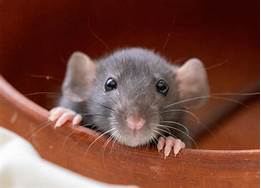How Long Do Pet Rats Live?
Pet rats are becoming increasingly popular, and for good reason. They are intelligent, social, and affectionate creatures that can make wonderful companions. However, before you decide to get a pet rat, it is important to know how long they live. This will help you make an informed decision about whether or not a rat is the right pet for you.

Average lifespan of pet rats
The average lifespan of a pet rat is 2-3 years. However, some rats may live for as long as 5 years, while others may only live for a year or two. Several factors can affect a rat's lifespan, including genetics, diet, exercise, and overall health. Rats are also susceptible to several diseases and health conditions, which can shorten their lifespan.
Factors affecting a rat's lifespan
Several factors can affect a rat's lifespan:
1. Genetics: Some rat breeds are more prone to certain diseases and health conditions than others. For example, rats with white fur are more likely to develop skin cancer. Rats with a history of respiratory problems are more likely to develop lung disease.
2. Diet: A healthy diet is essential for a long and healthy life. Rats need a diet that includes high-quality protein, carbohydrates, fats, vitamins, and minerals. A diet that is high in sugar and fat can contribute to obesity, diabetes, and other health problems.
3. Exercise: Rats are active creatures that need plenty of exercise to stay healthy. Rats that are not active enough are more likely to develop obesity, heart disease, and other health problems. Rats should have access to a large cage with plenty of toys and climbing structures to keep them active.
4. Overall health: Rats are susceptible to several diseases and health conditions, including respiratory infections, gastrointestinal problems, and cancer. Regular veterinary checkups can help to catch these diseases early and prevent them from becoming serious.
How to increase a rat's lifespan
There are several things you can do to increase your rat's lifespan:
1. Provide a healthy diet: Feed your rat a healthy diet that is high in protein, carbohydrates, fats, vitamins, and minerals. Avoid feeding your rat foods that are high in sugar and fat.
2. Encourage exercise: Make sure your rat has access to a large cage with plenty of toys and climbing structures to keep them active. Rats should have at least 30 minutes of exercise daily.
3. Take your rat to the vet for regular checkups: Regular veterinary checkups can help to catch diseases early and prevent them from becoming serious. Rats should have a checkup at least once a year.
4. Provide a healthy environment: Rats need a clean and comfortable environment to live in. Keep your rat's cage clean and provide them with fresh food and water daily. Rats should also have access to a hiding place where they can feel safe and secure.
Declaration: All article resources on this website, unless otherwise specified or labeled, are collected from online resources. If the content on this website infringes on the legitimate rights and interests of the original author, you can contact this website to delete it.




